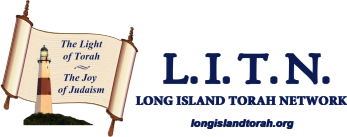Balak
After Israel’s victories in Transjordan, neighboring Moab fears for its own safety. The Moabite King Balak sends emissaries to Bil’am, a renowned sorcerer: “Please curse this nation on my behalf, for it is more powerful than I; perhaps I shall be able to diminish it and drive it from the land; for I know that the one you bless is blessed, and the one you curse is accursed!”
Bil’am instructs Balak’s messengers to stay the night while he awaits Divine communication. Greedy, arrogant and degenerate, Bil’am is nevertheless a genuine prophet; but even Divine communication does not elevate his character. In a nocturnal vision, G-d forbids Bil’am to go to Moab: “Do not curse the nation, for it is blessed!”
Bil’am pointedly tells Balak’s messengers that he may not go with them; Balak takes the hint, sending a second group of more numerous and more prominent officials. This time, G-d tells Bil’am he may go – but he may only say what G-d tells him to.
Bil’am sets out, hoping to ultimately win Divine approval for his nefarious plan. G-d sends an angel to stop him; Bil’am is oblivious to the angel’s presence, but his donkey is not. Three times the donkey balks and is beaten by Bil’am; G-d miraculously grants the gift of speech to the donkey, which rebukes Bil’am and forces him to admit that he is behaving inappropriately.
At last G-d enables Bil’am to see the angel, to whom Bil’am humbly apologizes, offering to turn back “if it displeases you.” The angel merely reiterates G-d’s instructions: Bil’am may go, but will only be allowed to say what G-d wants him to.
Bil’am arrives in Moab; Balak identifies the ideal location for pronouncing a curse. Bil’am seeks Divine communion, hoping to invoke G-d’s wrath upon Israel; instead, G-d sends him back to Balak with a message:
From Aram he has led me – Balak, King of Moab:
“Go, curse for me Jacob; and go, bring down wrath upon Israel!”
What curse can I utter, when G-d has not cursed?
And what wrath can I arouse? G-d has shown no wrath!
Repeated attempts by Balak and Bil’am meet with the same result: instead of deadly curses, Bil’am is forced to pronounce lofty praises and beautiful blessings.[1] Balak sends Bil’am home – but not before Bil’am hatches a dastardly plot, which unfortunately meets with success.
The Moabites, together with their Midianite allies, send their daughters to seduce the Jews and lead them to idolatry. A plague breaks out, killing thousands. Zimri, leader of the Tribe of Shimon, marches a Midianite princess into his tent, in full view of Moses and the elders, who stand weeping in despair. Pinchas, a grandson of Aaron, saves the day, slaying the sinful couple and eliciting Divine compassion, which ends the plague.
[1] Including the famous Ma tovu ohalecha Yaakov, incorporated into the daily morning prayer service.
Click below to open a printable pdf
Bil’am instructs Balak’s messengers to stay the night while he awaits Divine communication. Greedy, arrogant and degenerate, Bil’am is nevertheless a genuine prophet; but even Divine communication does not elevate his character. In a nocturnal vision, G-d forbids Bil’am to go to Moab: “Do not curse the nation, for it is blessed!”
Bil’am pointedly tells Balak’s messengers that he may not go with them; Balak takes the hint, sending a second group of more numerous and more prominent officials. This time, G-d tells Bil’am he may go – but he may only say what G-d tells him to.
Bil’am sets out, hoping to ultimately win Divine approval for his nefarious plan. G-d sends an angel to stop him; Bil’am is oblivious to the angel’s presence, but his donkey is not. Three times the donkey balks and is beaten by Bil’am; G-d miraculously grants the gift of speech to the donkey, which rebukes Bil’am and forces him to admit that he is behaving inappropriately.
At last G-d enables Bil’am to see the angel, to whom Bil’am humbly apologizes, offering to turn back “if it displeases you.” The angel merely reiterates G-d’s instructions: Bil’am may go, but will only be allowed to say what G-d wants him to.
Bil’am arrives in Moab; Balak identifies the ideal location for pronouncing a curse. Bil’am seeks Divine communion, hoping to invoke G-d’s wrath upon Israel; instead, G-d sends him back to Balak with a message:
From Aram he has led me – Balak, King of Moab:
“Go, curse for me Jacob; and go, bring down wrath upon Israel!”
What curse can I utter, when G-d has not cursed?
And what wrath can I arouse? G-d has shown no wrath!
Repeated attempts by Balak and Bil’am meet with the same result: instead of deadly curses, Bil’am is forced to pronounce lofty praises and beautiful blessings.[1] Balak sends Bil’am home – but not before Bil’am hatches a dastardly plot, which unfortunately meets with success.
The Moabites, together with their Midianite allies, send their daughters to seduce the Jews and lead them to idolatry. A plague breaks out, killing thousands. Zimri, leader of the Tribe of Shimon, marches a Midianite princess into his tent, in full view of Moses and the elders, who stand weeping in despair. Pinchas, a grandson of Aaron, saves the day, slaying the sinful couple and eliciting Divine compassion, which ends the plague.
[1] Including the famous Ma tovu ohalecha Yaakov, incorporated into the daily morning prayer service.
Click below to open a printable pdf
| balak_snapshot.pdf | |
| File Size: | 521 kb |
| File Type: | |

